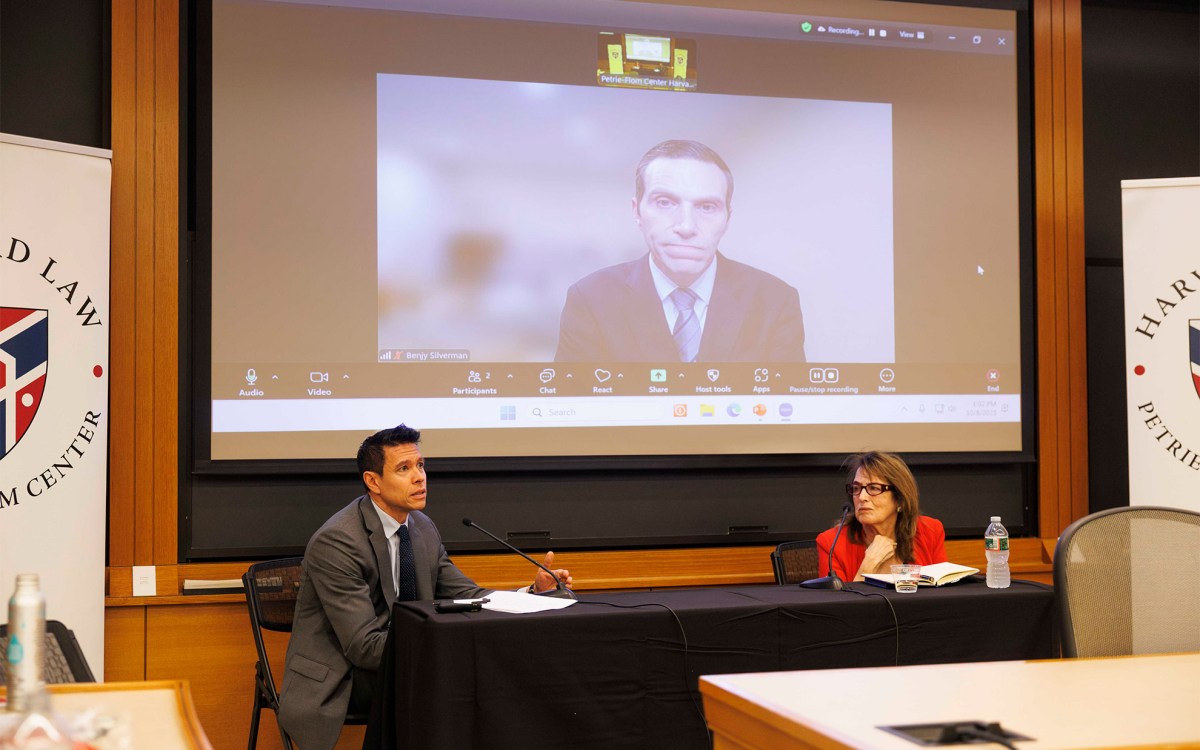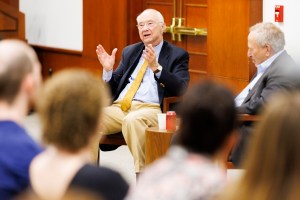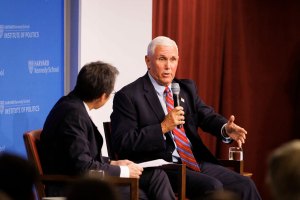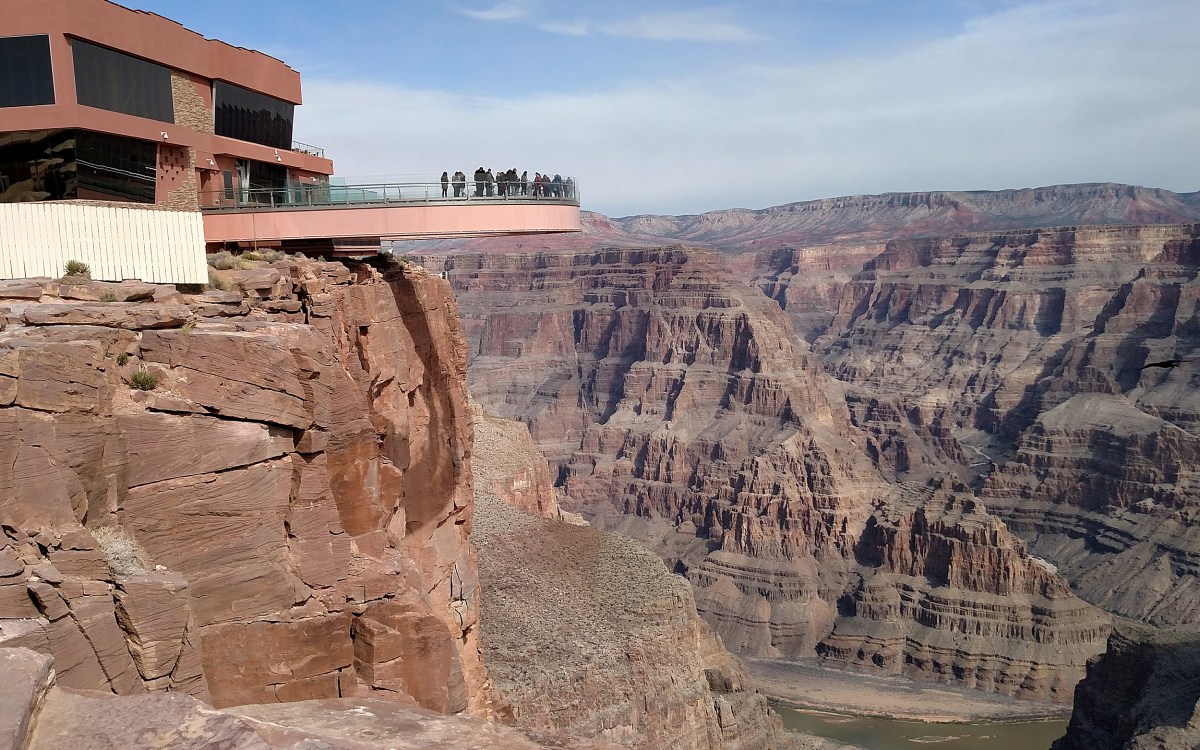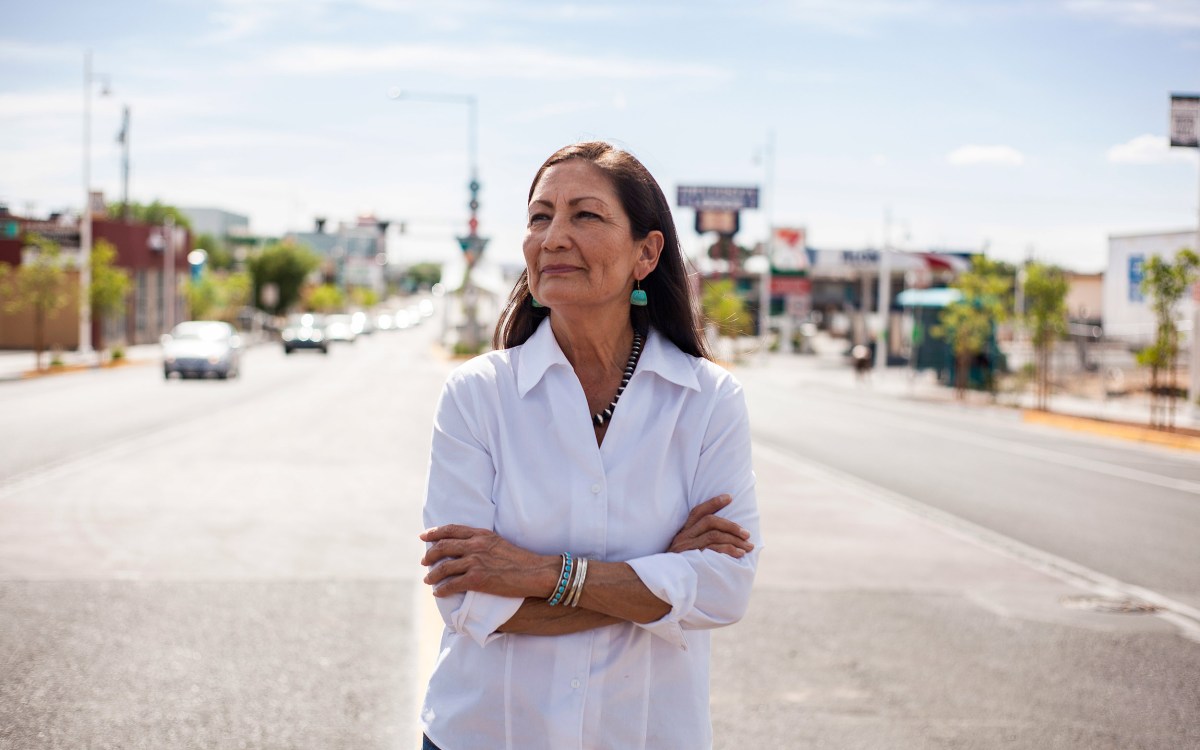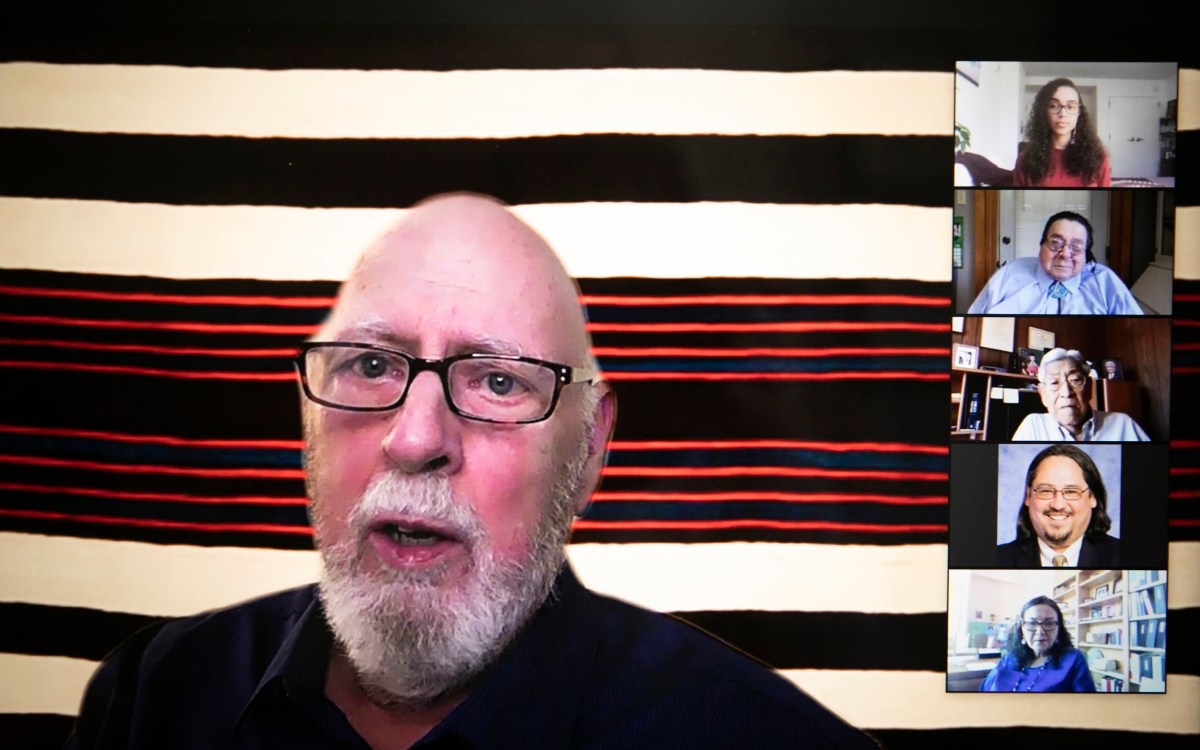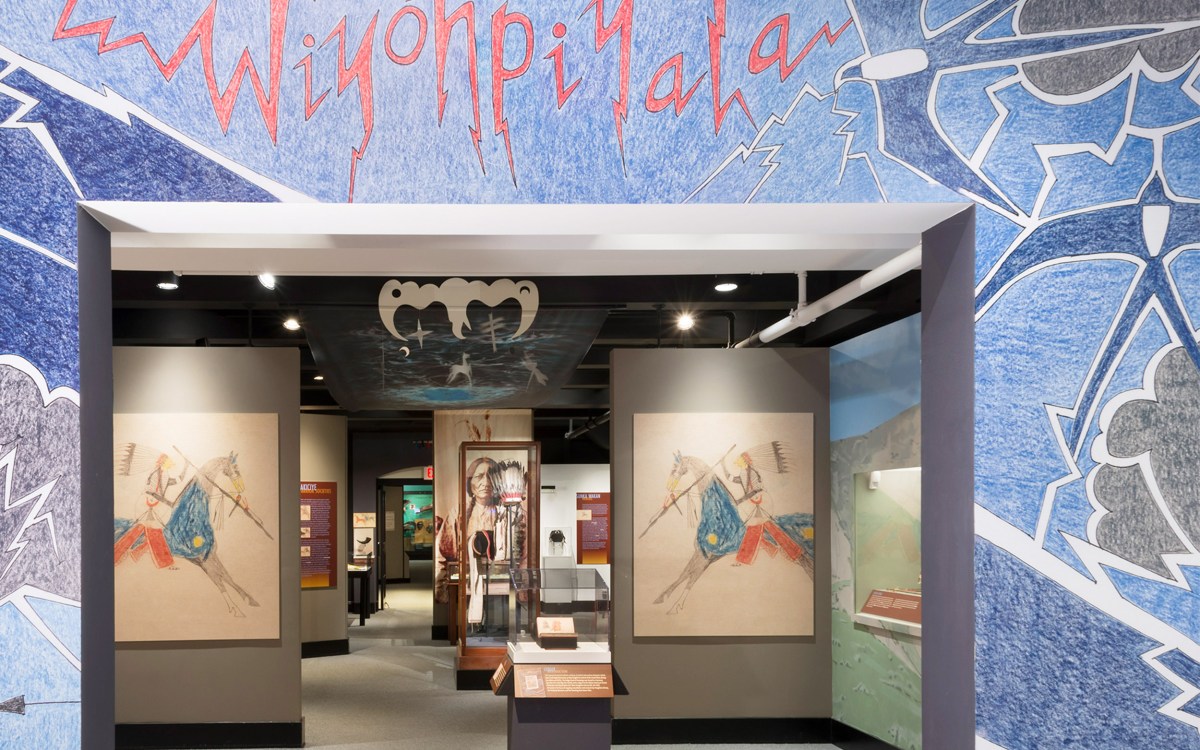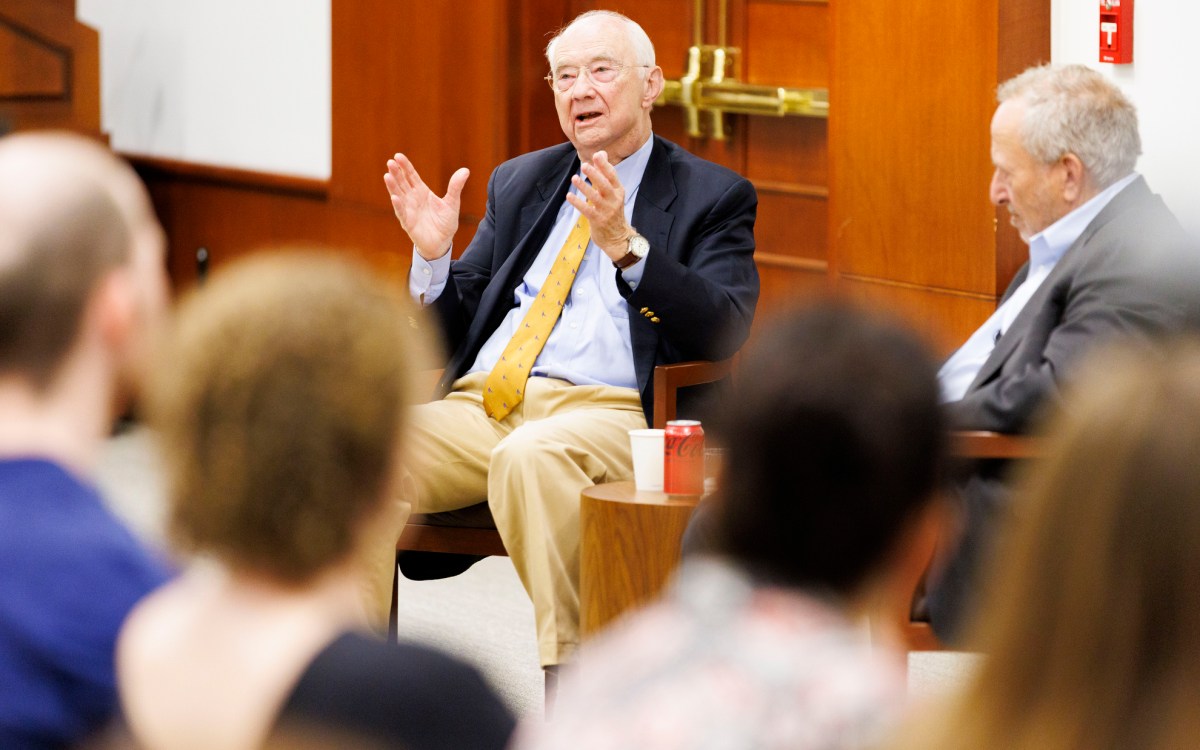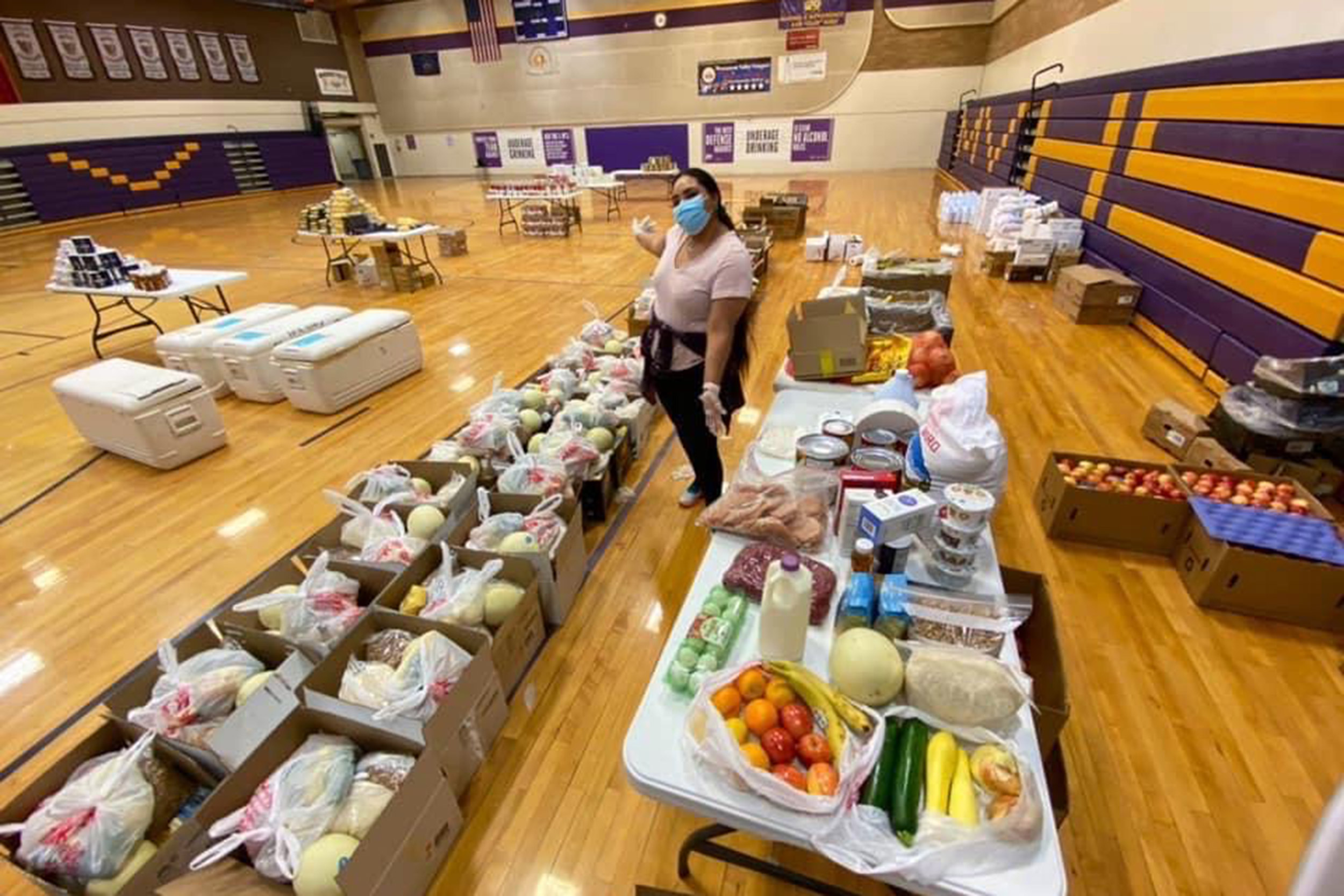
Shandiin Herrera, who is assembling food boxes, is a board member of Yee Ha’ólníi Doo, the nonprofit group that manages the funds to help the Navajo and Hopi communities.
Photos courtesy of Ethel Branch
Making gifts that keep on giving
Native COVID-19 relief fund plans to use excess funds to build community resilience
Ethel Branch hoped to raise about $5,000 to help a few dozen elders with food, water, and cleaning supplies when she launched a fund-raiser to help the Navajo and Hopi communities in March as the coronavirus pandemic was spreading across the nation. It was the least she could do, she thought.
Instead, the efforts of Branch ’01, M.P.P. ’08, J.D. ’08, exceeded her wildest expectations. The Navajo & Hopi Families Covid-19 Relief Fund has raised nearly $18 million, which includes a recent $10 million gift from billionaire philanthropist MacKenzie Scott.
The fund, which ranked among last year’s top five projects on GoFundMe, has distributed food supplies, water, and personal protective equipment to more than 350,000 people in the Navajo and Hopi reservations, covering all 12 Hopi villages and 93 of 110 chapters in the Navajo Nation.
Branch, who started the campaign with 11 other Navajo women, is ecstatic.
“Never in a million years would I have dreamed that we would raise this much money to protect our communities,” said Branch from her Flagstaff, Ariz., home.
“The incredible love and generosity that the good people of this country — and the world — have shown our Navajo and Hopi people is simply astounding and gives me so much hope for the future of humankind,” she said.
The country’s 6.7 million Native Americans are among the hardest-hit communities by COVID-19 despite the fact that most of the 574 federally recognized tribal nations enforced curfews and strict safety protocols in the early days of the pandemic.
“Never in a million years would I have dreamed that we would raise this much money to protect our communities,” said Ethel Branch, the former Attorney General of the Navajo Nation.
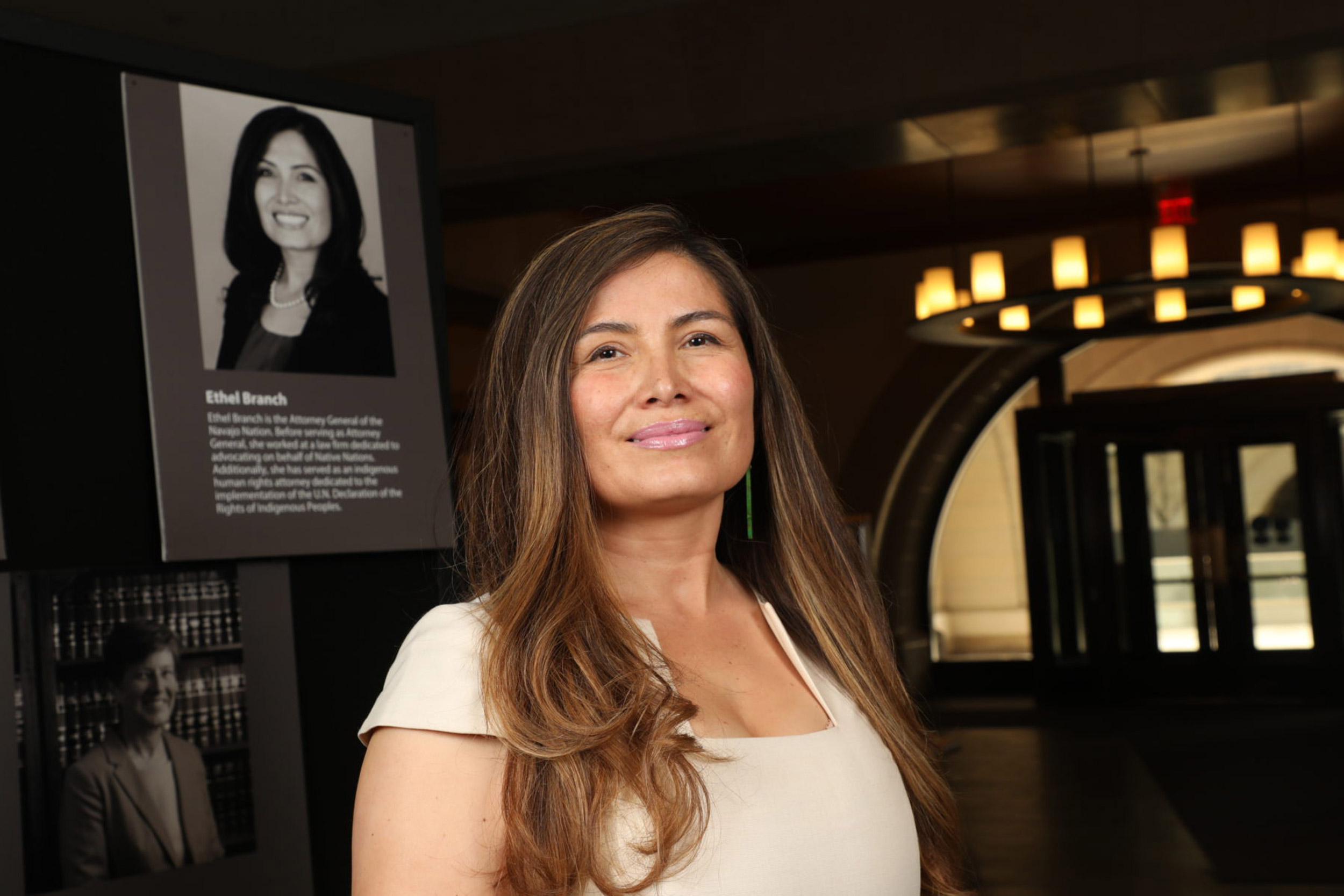
According to Indian Health Services, the federal health program for Native Americans and Alaska Natives, there are more than 187,000 confirmed cases of the coronavirus among Native American tribes. Nearly 31,000 of them were reported on the Navajo reservation, home to 180,000 people.
The Centers for Disease Control (CDC) attributes the high incidence of COVID-19 among Native Americans to health disparities caused by persistent racial inequity and historical trauma, underlying health conditions such as diabetes and heart disease, and a high poverty rate. A third of Navajo citizens lack running water, and another third don’t have electricity in their homes. A third of Hopi citizens also lack running water and electricity.
According to the CDC, COVID-19 infection are 3.5 times higher among Native Americans than among whites.
For Branch and many Native Americans, the coronavirus crisis has struck at the heart of their communities with the death of many elders, who are vulnerable to the disease because they live on fixed incomes and lack quality health care. In many Indigenous nations, elders are the repositories of their traditions and cultures; many of them tend to be traditional healers, speak their Native tongues, and know the history of the clans and family groups. Their passing is a cloud over the communities, said Branch.
“When we lose an elder, it’s like losing a library of knowledge related to our traditions and culture and how we came to be here.”
Ethel Branch ’01, M.P.P. ’08, J.D. ’08
“The amount of loss is overwhelming,” Branch said. “It’s devastating in terms of the cultural knowledge we’re losing in one fell swoop. Our languages are at risk of being lost and never being recovered. When we lose an elder, it’s like losing a library of knowledge related to our traditions and culture and how we came to be here.”
Branch said the virus posed an existential threat to her community, and in June she took a leave of absence from the law firm she had returned to after her four-year term as the Attorney General of the Navajo Nation. To manage the funds, Branch and 11 Native women co-founded the grass-roots, nonprofit organization Yee Ha’ólníi Doo, which means “May Our People Have Fortitude” in Navajo.
The COVID-19 crisis has made Native communities more aware of their vulnerabilities but it has also led to an upswing in civic involvement. Hundreds of local volunteers work every week handing out food packages and personal protective equipment kits across the Navajo and Hopi reservations, which are located in parts of Arizona, New Mexico, and Utah.
Volunteers make purchases, assemble food baskets and protective equipment kits, and deliver the packages to distribution points or people’s homes. A group of women have sewn 100,000 masks and gowns for health care workers and first-responders in Navajo and Hopi communities. The group also leads a public education program about the virus and the vaccine, which is now being rolled out in the Native communities, bringing a ray of hope.
The fund has distributed food supplies, water, and personal protective equipment to almost 260,000 people in the Navajo and Hopi reservations.
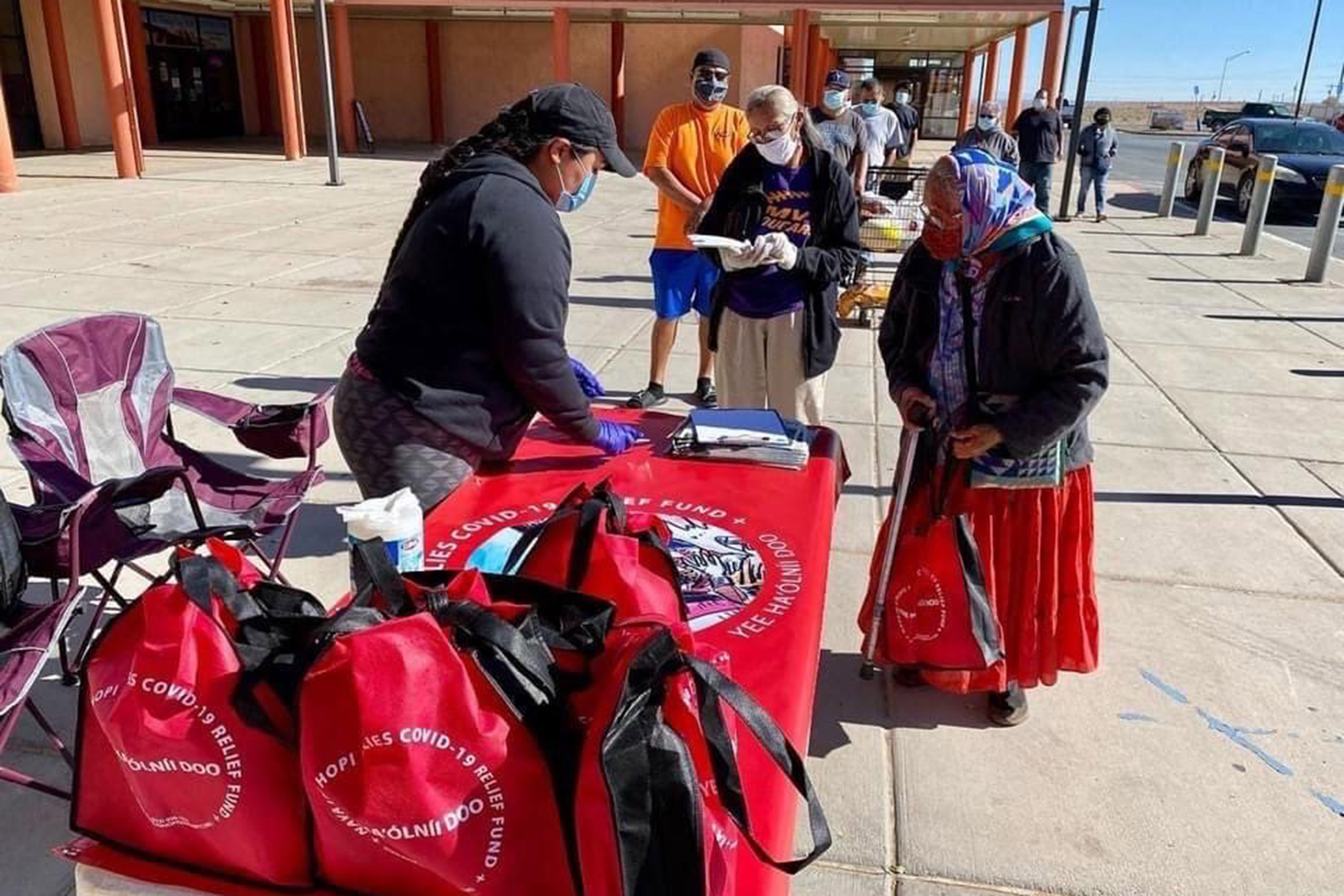
More like this
Many of the volunteers are young people. One of them is Shandiin Herrera, a recent graduate of Duke University, who was recruited by Branch. A Lead for America Hometown Fellow, Herrera is working with the Oljato Chapter of the Navajo Nation in her home community of Monument Valley.
“Growing up here, I saw a lot of the disparities our families face,” said Herrera. “There’s a lot of work that needs to be done in terms of building infrastructure so that our communities can function better. I’m so grateful to be a part of this work. It has been some of the most meaningful work that I’ve done.”
Another silver lining has been the participation of Irish citizens in the fundraising campaign. In May, an Irish reporter tweeted about the fund, and since then, donations from Ireland have kept coming. In comments left on the GoFundMe page, Irish donors said they made contributions in remembrance of a donation made in 1847 by Choctaw leaders who collected $170 to help the Irish during the Potato Famine.
Native Americans raised a huge amount in famine relief for Ireland at a time when they had very little. It’s time for is to come through for them now. https://t.co/ONl9UXmwdH
— Naomi O’Leary (@NaomiOhReally) May 2, 2020
— Naomi O’Leary (@NaomiOhReally) May 2, 2020
U2 drummer Larry Mullen, Jr., donated $100,000, but many other Irish citizens have made small donations with comments such as “It’s only fair,” “Repaying an Irish debt,” “We Remember,” and “For Kindness Shown to Ireland.” A woman who has donated five times wrote, “The Choctaw Nation helped my ancestors in Ireland when they themselves had so little. It’s the least I can do.”
For Branch, the Irish connection has been as unexpected as moving. “Even these days, when I go on our page, there are four, five comments from Irish people saying, ‘We remember what your people did for us,’” she said. “It’s been so heartening.”
After the public health crisis is over, Branch and her Native counterparts plan to concentrate on starting community centers across the Navajo reservation to serve as innovation hubs to foster small businesses and social entrepreneurship. The goal is to support individual community members to help build long-term resilience for the community.
“I’m hopeful about the leadership at the local level that has emerged,” said Branch. “I hope that those young leaders continue to be leaders of positive change in their communities and help us transform our communities from being vulnerable to threats, like the pandemic or climate change, into being resilient and able to withstand any challenge.”
The group will soon launch a fundraiser that will allow donors to directly purchase or contribute towards isolation kits for COVID-positive tribal members and PPE kits for children and adults. The link will be available on their website by the end of the month.
